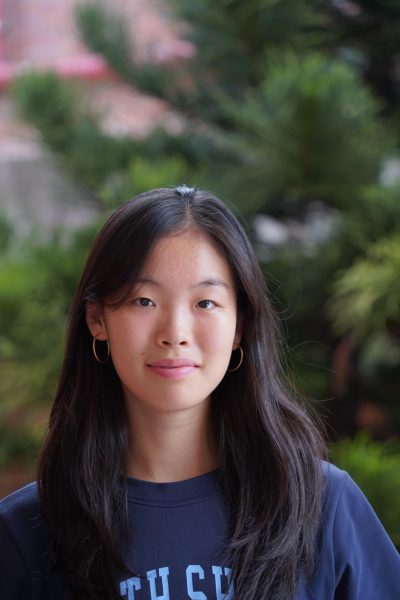With 51% of students having used generative artificial intelligence (AI) at some point for their academics and 60% of educators using it in the classroom, the growing prominence of generative AI in academic settings has become a rapidly increasing topic of interest and concern for adults and students alike. Generative AI is a type of AI that can create new content or ideas, including conversations and images. AI has already gained the trust of many students globally for its efficiency and easy-to-understand explanations, as it is very easy to request follow-up information. However, many teachers believe that it should be restricted for students. The most notable reason behind this is AI’s notorious reputation for undermining academic integrity by making the act of deceiving teachers and cheating on assignments all too easy for students since it can generate writing, improve essays and provide answers to questions. As much as the protection of academic honesty is a significant issue in educational institutions, it is crucial to acknowledge that AI has a multitude of positive aspects to offer to students, like assistance in brainstorming and finding extensive information on academic content. It should also be noted that AI is not going to go away anytime soon; rather, it’ll only grow more advanced as technological innovation continues. Therefore, the only path to move forward is to find a way to use it as a tool to optimize learning without compromising morals.
Mrs. Ashley Stevens, a 9th-grade English teacher who has been at Taipei American School (TAS) for three years, noted that it is extremely important to limit student use of AI as much as possible in the classroom, especially for humanities subjects such as English and history:“[When students use AI], they lose the ability to think critically and create their own writing skills,” Mrs. Stevens said. However, AI can be a useful tool in academics when seen as a learning mentor and used effectively as a supplement to student writing, instead of relying on it to complete the entire assignment.
Since it is implausible that AI will disappear over the next few years, I believe that it is essential for educators and students to find a middle ground. In recent times, it has become impossible to deny that the use of AI in the classroom has had a hugely significant impact on students, changing the way they learn and process new information. One of the most drastic differences that AI makes for students in education is the personalization of learning. It can offer a tailored learning approach that is best suited for each individual student, incorporating different study methods formulated based on their strengths and weaknesses. “AI helped me a lot in understanding difficult concepts and equations, especially in math and science subjects,” Naomi L. (‘28) said. The student-specific approach to their studies increases the effectiveness and level of understanding of the learning material in a shorter amount of time.
As is the case with most good things, numerous negative aspects are associated with AI usage. The most concerning issue is the loss of student learning. This is because the growing field and capability of AI have made it simpler than ever for students to have artificial intelligence programs complete their assignments without having to do any of the work. This blocks students from actually learning and processing the material, which creates a cycle of continuous reliance on AI since they are missing the information needed to complete further studies.
Some strategies teachers can implement to lessen this issue is making assignments that also place weight on their thought process instead of just requiring the final answer. This could be requiring the outlines for an essay and their work in math or science problems. Furthermore, teachers could provide other ways to clear up understanding such as setting up times to check in individually with students. This could help students to learn on their own without having to turn to AI. Clearly, there is a need for guidelines in place concerning student AI usage, because it is safe to say AI will continue to revolutionize education in the future.

![A “cyber brain.” [PHOTO COURTESY OF PIXABAY]](https://blueandgoldonline.org/wp-content/uploads/2025/01/cyber-brain-7633488_1280-1200x800.jpg)
![A myriad of impressive trophies and awards. [ANNABELLE HSU/THE BLUE & GOLD]](https://blueandgoldonline.org/wp-content/uploads/2025/09/Awards2-1200x512.jpeg)
![Students' calendars say goodbye to exam week. [ANNABELLE HSU/THE BLUE & GOLD]](https://blueandgoldonline.org/wp-content/uploads/2025/09/Exam-week-1200x740.jpg)
![A collection of college flags. [PHOTO COURTESY OF AMBER HU ('27)]](https://blueandgoldonline.org/wp-content/uploads/2025/05/IMG_5029-1200x577.jpeg)

![An SAT word cloud. [PHOTO COURTESY OF WORDCLOUDS]](https://blueandgoldonline.org/wp-content/uploads/2025/05/SAT.jpeg)
![Collage of banned books, including “The Handmaid’s Tale” by Margaret Atwood. [MINSUN KIM/ THE BLUE & GOLD]](https://blueandgoldonline.org/wp-content/uploads/2025/04/IMG_4274-1200x681.jpeg)
